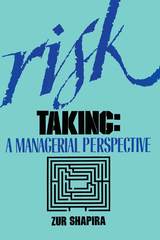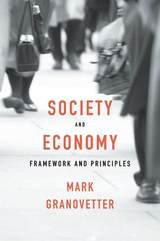
A collection of the most advanced and authoritative agricultural-economic research in the face of increasing water scarcity.
Agriculture has been critical in the development of the American economy. Except in parts of the western United States, water access has not been a critical constraint on agricultural productivity, but with climate change, this may no longer be the case. This volume highlights new research on the interconnections between American agriculture, water resources, and climate change. It examines climatic and geologic factors that affect the agricultural sector and highlights historical and contemporary farmer responses to varying conditions and water availability. It identifies the potential effects of climate change on water supplies, access, agricultural practices, and profitability, and analyzes technological, agronomic, management, and institutional adjustments. Adaptations such as new crops, production practices, irrigation technologies, water conveyance infrastructure, fertilizer application, and increased use of groundwater can generate both social benefits and social costs, which may be internalized with various institutional innovations. Drawing on both historical and present experiences, this volume provides valuable insights into the economics of water supply in American agriculture as climate change unfolds.

"John Tishman is a true pioneer in the Construction Management industry. Through his CM leadership, some of America's most well-known buildings have been brought to successful completion."
---Bruce D'Agostino, president and chief executive, Construction Management Association of America
"Building Tall will provide readers with insights into John Tishman's career as a visionary engineer, landmark builder, and great businessman. Responsible for some of the construction world's most magnificent projects, John is one of the preeminent alumni in the history of Michigan Engineering. His perspectives have helped me throughout my time as dean, and his impact will influence generations of Construction Management professionals and students."
---David C. Munson, Jr., Robert J. Vlasic Dean of Engineering, University of Michigan
In this memoir, University of Michigan graduate John L. Tishman recounts the experiences and rationale that led him to create the entirely new profession now recognized and practiced as Construction Management. It evolved from his work as the construction lead of the "owner/builder" firm Tishman Realty and Construction, and his personal role as hands-on Construction Manager in the building of an astonishing array of what were at the time the world's tallest and most complex projects. These include
- The world's first three 100-story towers---the original "twin towers" of the World Trade Center in Manhattan and the Hancock Tower in Chicago.
- The Epcot Center at Disney World.
- The Renaissance Center in Detroit.
- New York's Madison Square Garden.
Tishman interweaves the stories behind the construction of these and many other important buildings and projects with personal reminiscences of his dealings with Henry Ford, Jr., Disney's Michael Eisner, casino magnate Steve Wynn, and many others into a practical history of the field of Construction Management, which he pioneered.
This book will be of interest not only to a general public interested in the stories and personalities behind many of the most iconic construction projects of the post–World War II period in the United States but to students of engineering and architecture and members of the new field of Construction Management.

Cubs fans have often focused on one or two star performers, to the detriment of the team's overall performance.
Stars have often been selfish and devoted to their own success. Leaders have toleratged them, often at a price
to the whole team. Effective leadership recognizes the dangers in this situation. Here's their antidote--in a
highly-readable book that's hot off the press! Foreword by bestselling-author Ken Blanchard.

Research powers innovation and technoscientific advance, but it is due for a rethink, one consistent with its deeply holistic nature, requiring deeply human nurturing.
Research is a deeply human endeavor that must be nurtured to achieve its full potential. As with tending a garden, care must be taken to organize, plant, feed, and weed—and the manner in which this nurturing is done must be consistent with the nature of what is being nurtured.
In The Genesis of Technoscientific Revolutions, Venkatesh Narayanamurti and Jeffrey Tsao propose a new and holistic system, a rethinking of the nature and nurturing of research. They share lessons from their vast research experience in the physical sciences and engineering, as well as from perspectives drawn from the history and philosophy of science and technology, research policy and management, and the evolutionary biological, complexity, physical, and economic sciences.
Narayanamurti and Tsao argue that research is a recursive, reciprocal process at many levels: between science and technology; between questions and answer finding; and between the consolidation and challenging of conventional wisdom. These fundamental aspects of the nature of research should be reflected in how it is nurtured. To that end, Narayanamurti and Tsao propose aligning organization, funding, and governance with research; embracing a culture of holistic technoscientific exploration; and instructing people with care and accountability.

Volume 6 of the Leadership Symposia—sponsored by the Department of Administrative Sciences and College of Business Administration at Southern Illinois University, Carbondale—charts the state of the field of leadership through a judicious mixture of established and emerging scholars.
The text is broken into four parts, with each part containing an Introduction by the editors. Part 1 consists of “Leadership and Managerial Behavior as Loosely Coupled Systems for Moving Beyond Establishment Views,” by the editors; “The Relevance of Some Studies of Managerial Work and Behavior to Leadership Research,” Rosemary Stewart; “Unstructured, Nonparticipant Observation and the Study of Leaders’ Interpersonal Contacts,” Robert S. Bussom, Lars L. Larson, and William M. Vicars; “Leaders on Line,” Michael M. Lombardo and Morgan W. McCall, Jr.; and “Various Paths Beyond Establishment Views,” Bernard Wilpert.
Part 2 contains “Multiplexed Supervision and Leadership,” Fred Dansereau, Jr., Joseph A. Alutto, Steven E. Markham, and MacDonald Dumas; “A Theory of Leadership Categorization,” Robert G. Lord, Roseanne J. Foti, and James S. Phillips; “Leadership Activation Theory,” John E. Sheridan, Jeffrey L. Kerr, and Michael A. Abelson; and “Intensity of Relation, Dyadic-Group Considerations, Cognitive Categorization, and Transformational Leadership,” Bernard M. Bass; “Strategies for Dealing with Different Processes in Different Contexts,” Ian Morley, “A Multiplexed Response to Bass and Morley,” Fred Dansereau, Jr., Joseph A. Alutto, Steven E. Markham, and MacDonald Dumas; and “Properly Categorizing the Commentary,” Roseanne J. Foti, Robert G. Lord, and James S. Phillips.
Part 3 contains “SYMLOG and Leadership Theory,” Robert F. Bales and Daniel J. Isenberg; “Toward a Macro-Oriented Model of Leadership: An Odyssey,” James G. Hunt and Richard N. Osborn; and “Toward a Paradigm Shift in the Study of Leadership,” Henry J. Tosi, Jr.
Essays in part 4 are “If You’re Not Serving Bill and Barbara, Then You’re Not Serving Leadership,” Henry Mintzberg; “Beyond Establishment Leadership Views: An Epilog,” by the editors; “Leadership Research and the European Connection: An Epilog,” Dian-Marie Hosking and James G. Hunt; and “Conclusion: The Leadership-Management Controversy Revisited,” Schriesheim, Hunt, and Sekaran.

A comprehensive and accessible guide to learning and successfully applying QCA
Social phenomena can rarely be attributed to single causes—instead, they typically stem from a myriad of interwoven factors that are often difficult to untangle. Drawing on set theory and the language of necessary and sufficient conditions, qualitative comparative analysis (QCA) is ideally suited to capturing this causal complexity. A case-based research method, QCA regards cases as combinations of conditions and compares the conditions of each case in a structured way to identify the necessary and sufficient conditions for an outcome.
Qualitative Comparative Analysis: An Introduction to Research Design and Application is a comprehensive guide to QCA. As QCA becomes increasingly popular across the social sciences, this textbook teaches students, scholars, and self-learners the fundamentals of the method, research design, interpretation of results, and how to communicate findings.
Following an ideal typical research cycle, the book’s ten chapters cover the methodological basis and analytical routine of QCA, as well as matters of research design, causation and causal complexity, QCA variants, and the method’s reception in the social sciences. A comprehensive glossary helps to clarify the meaning of frequently used terms. The book is complemented by an accessible online R manual to help new users to practice QCA’s analytical steps on sample data and then implement with their own findings. This hands-on textbook is an essential resource for students and researchers looking for a complete and up-to-date introduction to QCA.


Society and Economy—a work of exceptional ambition by the founder of modern economic sociology—is the first full account of Mark Granovetter’s ideas about the diverse ways in which society and economy are intertwined.
The economy is not a sphere separate from other human activities, Granovetter writes. It is deeply embedded in social relations and subject to the same emotions, ideas, and constraints as religion, science, politics, or law. While some actions can be understood in traditional economic terms as people working rationally toward well-defined ends, much human behavior is harder to fit into that simple framework. Actors sometimes follow social norms with a passionate faith in their appropriateness, and at other times they conform without conscious thought. They also trust others when there is no obvious reason to do so. The power individuals wield over one another can have a major impact on economic outcomes, even when that power arises from noneconomic sources.
Although people depend on social norms, culture, trust, and power to solve problems, the guidance these offer is often murky and complicated. Granovetter explores how problem solvers improvise to assemble pragmatic solutions from this multitude of principles. He draws throughout on arguments from psychology, social network studies, and long-term historical and political analysis and suggests ways to maneuver back and forth among these approaches. Underlying Granovetter’s arguments is an attempt to move beyond such simple dualisms as agency/structure to a more complex and subtle appreciation of the nuances and dynamics that drive social and economic life.
READERS
Browse our collection.
PUBLISHERS
See BiblioVault's publisher services.
STUDENT SERVICES
Files for college accessibility offices.
UChicago Accessibility Resources
home | accessibility | search | about | contact us
BiblioVault ® 2001 - 2024
The University of Chicago Press









